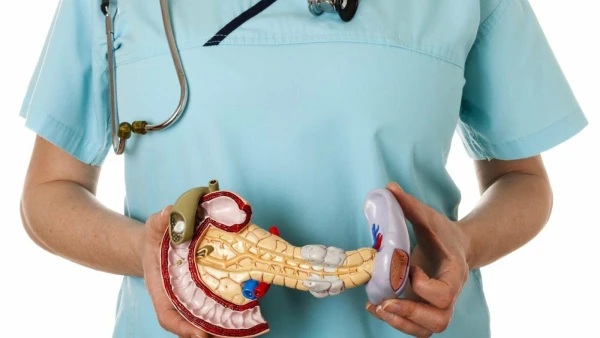
Have you noticed that you are eating more or have no appetite at all? This is a signal from the body that it needs help – we explain which tests you should sign up for.
Fluctuations in appetite are rarely dependent on mood, seasonal changes, or other side factors (only as a one-off case, if one overeats at dinner and does not want to have breakfast). Behind such changes are complex neuroendocrine mechanisms – from hormones and the functioning of the gastrointestinal tract to reactions to stress.
Appetite is not just a desire to eat, but a precise indicator of the body's condition. It is regulated by several systems: the nervous, endocrine, and digestive systems. When the balance is disrupted, the body can "turn off" the feeling of hunger or, conversely, intensify it. For example, hormonal fluctuations, sleep disorders, and metabolic disturbances often manifest as changes in appetite.
Endocrine System and Appetite Hormones
Hunger begins with the work of hormones that send signals to the brain. Leptin, produced by adipose tissue, informs the brain about satiety, while ghrelin, on the contrary, stimulates the feeling of hunger. When these signals are disrupted – for example, in insulin resistance, fluctuations in thyroid hormones, or chronic stress – appetite goes out of control.
Leptin deficiency is associated with a constant feeling of hunger, while hyperthyroidism (overactivity of the thyroid gland) is associated with increased appetite alongside weight loss. Hypothyroidism (a condition in which there is a deficiency of thyroid hormones), on the other hand, can reduce the desire to eat and cause drowsiness, a feeling of cold, and apathy.
Gastrointestinal Tract and the Gut-Brain Axis
The gastrointestinal tract is an active participant in regulating appetite. It produces dozens of hormones that influence the hunger centers in the brain.
In cases of gastritis, delayed gastric emptying, or microbiota disturbances, appetite often decreases: food is digested slowly, leading to heaviness and aversion to food.
An excess of simple carbohydrates in the diet and fluctuations in blood sugar, on the contrary, can provoke a constant feeling of hunger. This creates a vicious cycle: the more fast carbohydrates consumed, the greater the fluctuations in glucose and the higher the appetite.
The connection between the gut and the brain is being discussed more frequently lately. If the microbiota is disrupted, the production of neurotransmitters decreases. This particularly concerns the hormone serotonin, 90% of which is produced in the gut. As a result, apathy, anxiety, and a feeling of fog in the head may appear, making it difficult to concentrate.
Nervous System and Stress
The hypothalamus is a small area in the midbrain that regulates essential processes in the body and responds not only to physical but also to emotional signals. During stress, the brain releases cortisol, which suppresses appetite in some individuals while stimulating it in others.
Chronic stress is associated with increased calorie consumption and a tendency towards "comfort" foods high in fats and sugars. In contrast, acute stress states can temporarily reduce appetite due to the release of adrenaline.
If changes in eating behavior are accompanied by sleep disturbances and irritability, it is worth assessing stress levels and the quality of rest before looking for problems in the stomach.
Metabolism and Energy Balance
With age, the metabolic rate naturally decreases, and with it, the perception of hunger changes. People leading a sedentary lifestyle are less likely to feel hungry in the morning but experience acute hunger in the evenings – this is a reaction to disruptions in circadian rhythms and glucose levels.
Metabolic disorders – from anemia and vitamin D deficiency to iron or magnesium metabolism disturbances – also affect appetite. The brain perceives energy deficiency as a signal of alarm and can either increase hunger or, conversely, "turn it off" to conserve resources.
When to Get Tested
Appetite is not just a habit but a biological barometer: when it is disrupted, the body shows that something is out of balance. If you find one or more items from the list below, it is worth consulting specialists. An endocrinologist will check the levels of thyroid hormones, leptin, ghrelin, and insulin; a gastroenterologist will assess the condition of the stomach and intestines; a therapist will check levels of iron, vitamin D, and glucose.
-
If appetite changes persist for more than 2–3 weeks.
-
You are gaining or losing weight sharply.
-
You feel fatigue and apathy.
-
Sleep is disturbed.
-
You have developed tachycardia.















Leave a comment